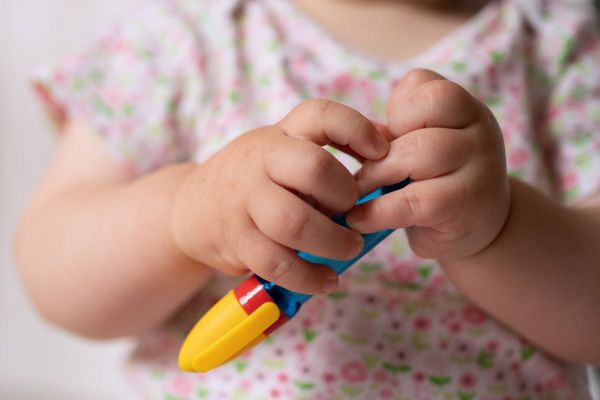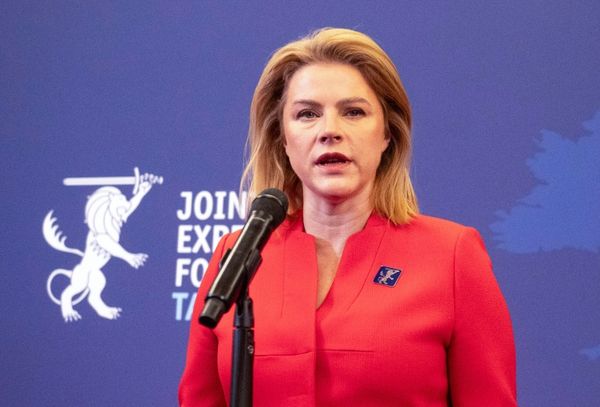
Qantas’ ageing fleet is struggling to stay in the air and on time as CEO Vanessa Hudson grapples with an under-resourced and industrially restless engineering division. Four of the airline’s A380 superjumbos should be back in action after a long wait in Abu Dhabi, and a few additional aircraft are anticipated over the next year, but the short and medium term looks bleak.
Qantas has one of the oldest fleets for a major airline with aircraft 15 years old on average. These planes are being worked hard, pilots and engineers told Crikey.
The age of the Qantas fleet is only bettered by legacy US carriers like United and Delta, while its main international competitors — such as Singapore Airlines, Emirates, Qatar and newcomer Turkish Airlines — have much younger and generally better-maintained craft, pilots say.
The latest publicly available government figures show Qantas cancelled 4% of its flights in August, well above the long-term average of 2.2% and compared with 1.7% at its regional arm QantasLink and 1.3% at Virgin Australia across its whole fleet.
One pilot explained to Crikey: “It’s like a car, the more preventative and regular maintenance you can do, the less an aircraft is likely to have a fault that stops it flying”. When planes are worked too hard, with regular maintenance missed, “it’s like an Uber driver thrashing the family Camry and expecting it to have no problems”.
One sign of Qantas’ ageing aircraft is that the minimum equipment list (MEL) for each plane is staying at levels you would not normally see on major airlines, one engineer said. Also known as “permissible unserviceabilities”, MELs provide for the operation of aircraft with particular inoperative equipment, subject to specified conditions. ”Otherwise the lack of maintenance is for all the normal reasons: no ground time, no spares, no people or the spares are where the aircraft isn’t,” the engineer said.
In the past week, Qantas cancelled three of its Sydney-Los Angeles QF11 flights on the A380 super jumbo. This is on top of two Melbourne-LA QF94 flights being cancelled in the past 10 days.
A Qantas engineer said the company “keeps a lot of B787 and A380 parts in Los Angeles. That means a 24-48 hour delay if the aircraft breaks in Sydney and the parts are in LAX. This is just plain stupid planning and management.”
Pilots told Crikey, in what they say is a common occurrence, that a spare part from LA en route to Sydney last week for a broken plane was unpacked inadvertently when freight was offloaded to accommodate more fuel.
Qantas does not have any spare aircraft, so the recent grounding of one Qantas B787 in Perth for more than a month caused at least one flight a day to be cancelled across its network, pilots said. And the decision during the Alan Joyce era to sell the company’s spare parts to UK firm AWJ has caused major issue, with the airline’s engineers now having to rely on outsourced parts.
“The 737 fleet is worn out and overworked. There are cancellations every day,” one pilot said.
The oldest aircraft in the Qantas fleet are 18 Fokkers, which are more than 30 years old in some cases. Originally purchased second-hand for use in Western Australia for fly-in-fly-out mining, some are now used on commercial routes.
“They are worn out now, tired and old with limited spare parts availability, especially electronics and engines, [which are] totally at the end of their operational life,” one pilot said. “Because of the aircraft age, things are continuing to break resulting in massive delays, often in remote places, and cancelled flights.” To bulk up the regional fleet in Western Australia, Qantas has acquired A319s from low-cost US carrier Spirit, but these are 19 years old on average.
Qantas is also using single-aisle A320 aircraft — “cast-offs” from Jetstar — for some of its regional subsidiaries. “They were the oldest and shittiest airplanes again at the end of their life, having done a massive amount of flying,” one regional pilot said. “The company claims these aircraft are midlife, but the reality is they are at the end of their commercial operating life. They are riddled with defects that are causing unscheduled delays, breakdowns, flight cancellations, etc.”
Even the new planes have issues. The first two (at least) of the new single-aisle A321XLR — longer-range aircraft that the airline is planning to fly both domestically on international routes — have been ordered with only three toilets instead of four (a cost-cutting measure under Alan Joyce) and will need to be upgraded when others arrive, pilots and Qantas insiders said.
Qantas told Crikey more than a month ago that it would “look into” the issue but has not issued an update.
While Qantas has dozens of new planes on order, these will fall well short of replacing the 75 737s, let alone allow for any fleet expansion. This lack of orders is a major headache for future management, especially as the pace at which new aircraft are being delivered globally has slowed dramatically. This was firstly due to the COVID-19 pandemic, but since then, ongoing supply chain challenges and safety issues at Boeing and Airbus have exacerbated the problem.
The International Air Transport Association has said the drop in deliveries contrasts starkly with the sharp rise in new orders placed for aircraft: “In the single year of 2023, as many as 4,745 aircraft were added to order books”. This delays not only local and global fleet renewal, but also the benefits to airlines in terms of lower fuel consumption and CO2 emissions.
In the meantime, disparity remains between the treatment of pilots at Virgin and Qantas. Virgin pilots strongly support a new Fair Work Commission deal for pay increase of more than 21% over three years, while Qantas short-haul pilots have voted down a proposal that would have given them a 9% pay rise in five years, albeit with other improved conditions management has claimed would boost salaries by 23-30%. The new Virgin deal gives its pilots a salary close to Qantas’ latest offer — and they get to fly newer planes that break down less.







